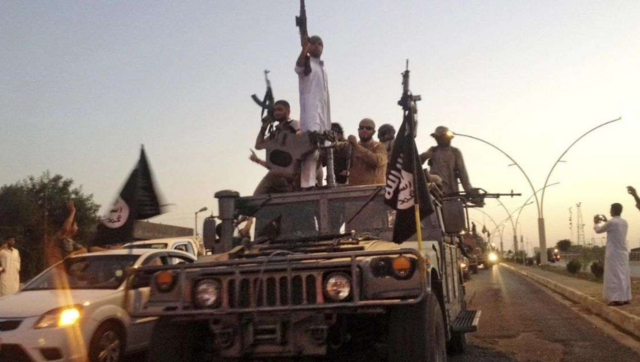The strategic equilibrium that underpins the role of the Pakistani armed forces as guarantors of Pakistan’s security and thereby gives them a free pass in running the country is in crisis. Without strategic depth, the Pakistani army, already under direct political attack from Imran Khan, risks losing political legitimacy. Since its formation, Pakistan has worked on quite a few borders in the west, with a troubled and supplicant Afghanistan and a reluctant Iran to concentrate force on India. That old formula is now giving way to a new formula. Pakistan now has to deal with a belligerent and dangerous Taliban that is no longer willing to play a stooge. At the same time, an expansionist Iran sent in warning salvos through ballistic missile strikes and is beefing up military capabilities on the vast, untamed lands that border Pakistan. The worsening relations between Pakistan and Iran not only endanger the economic aspects of strategic depth, especially concerning the Chinese-sponsored CPEC, but also create a potential security vacuum on the western border. The sectarian Shia-Sunni fault lines in the region further complicate the situation. Pakistan’s real worry is an Iran-sponsored Shia militia that will step in to stop the ethnic cleansing of the Shia that is underway in Pakistan. Pakistan’s brutal deportation of 1.7 million Afghans has provoked Kabul. In Afghanistan, there is a sense of outrage, and a Taliban response is inevitably going to be bloody. In January 2024, there was a fierce gunfight reported between Pakistani forces and Afghan Taliban border guards at the Kunar-Bajaur border. In September 2023, a clash killed five Pakistani soldiers and 12 Afghan nonmilitary attackers, leading to the closure of a major transit point for ten days. More ominously, the acting Afghan minister of borders and tribal affairs, Noorullah Noori, called the border between Islamabad and Kabul “imaginary”, calling the Durand line that separates the two countries unreal. Pakistan has responded by sending army personnel and border action teams in an export terror formula, but these raids have been largely unsuccessful and bloody. Afghanistan is nurturing a launchpad of its own, comprising activists of the Afghan Taliban and Pakistan, set to face non-state terror tactics that it itself employs. The Taliban’s resurgence, with its historical links to Pakistan’s intelligence agencies, adds a layer of complexity. While Pakistan may seek a stable and friendly Afghanistan, the nature of the Taliban’s governance and its historical connections raise concerns about the implications for regional stability. Collapse of strategic depth on Pakistan’s economic frontier On the economic front, to put it simply, Pakistan is running out of cash with no sign that it can restore finances without begging, borrowing, or stealing. It’s a dire place to be; last quarter, its inflation rate was 31.4 per cent. Its foreign reserves, even after $800 million from the IMF and a similar trench from Saudi Arabia, are a paltry $8 billion. Pakistan has found itself entangled in a persistent debt crisis, a complex issue rooted in structural weaknesses within its economy. While seeking bailout packages from the International Monetary Fund (IMF) and financial support from China may provide temporary relief, they often act as short-term solutions that merely postpone addressing the deeper economic challenges. High inflation, in particular, has become a pressing concern, posing serious implications for the country’s economic stability. The country’s persistent trade deficits and a widening current account gap have led to a burgeoning external debt, making it increasingly challenging for Pakistan to service its debt obligations. Without money, Pakistan finds itself in a state of dangerous dependency. In international politics, there are no free lunches, and Arab, American (through the IMF), and Chinese support comes at the cost of a thousand cuts to Pakistan’s international sovereignty. This limits its ability to function as an independent player in foreign affairs. For Pakistan, the economic hollowing out of strategic depth has an added problem because, structurally, for the next few decades, there is simply no way out of economic chaos. The state produces very little value, imports too much, and consumes a huge amount of borrowed money. Its defence budget of $6 billion is unsustainable amidst growing threat perceptions. The ethnic strategic depth is shrinking too Pakistan has been a picnic for the Islamic Punjabi warlords. The Pakistan Army is dominated by Punjabi stock. An estimated 60 per cent of the army is Punjabi. In the economy too, the 100 million Punjabis dominate, with a 55 per cent share of manufacturing and 52 per cent in agriculture. This domination has led other ethnic groups to take up arms since Pakistan’s creation, with the Bengalis opting out in 1971. The festering fight for freedom in Balochistan, the tensions of freedom in Sindh, and the ethnic strife of the Pashtoon people are gaining ground amidst a crippling economic slowdown. Pakistan is more vulnerable than it has ever been. Contrary to think tanks and conventional wisdom, whenever Pakistan has been weak, it has been great for India, as was the case in 1971. India’s economic growth and eventually enhanced military spending will make Pakistan increasingly less relevant to India’s security and wellbeing. The writer is a senior journalist with expertise in defence. Views expressed in the above piece are personal and solely that of the author. They do not necessarily reflect Firstpost_’s views._ Read all the Latest News , Trending News , Cricket News , Bollywood News , India News and Entertainment News here. Follow us on Facebook , Twitter and Instagram .
How Pakistan's politico-economic crisis can be an opportunity in disguise for India
Ninad D Sheth
• January 30, 2024, 19:05:46 IST
India’s economic growth and eventually enhanced military spending will make Pakistan increasingly less relevant to India’s security and wellbeing
Advertisement
)